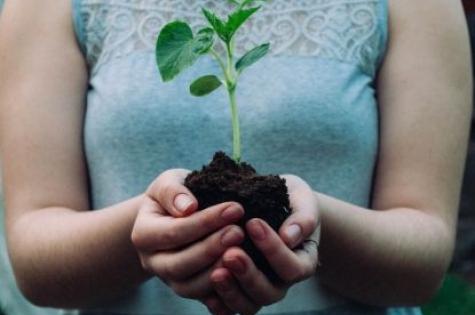The effects of global warming are becoming harder and harder to ignore. In light of this year’s tragic events, this is perhaps nowhere clearer than in Australia. While everyone wants to do their part, it can be hard to know what changes an individual can do to really make a difference. It’s a challenge that is made all the more difficult for mums who are probably juggling a busy lifestyle, child care and a family budget. There are many ways to make a home eco-friendlier that will help the environment without taking up too much time or money.
1. Wash in Cold Water and Skip the Dyer
Heating water takes up between 80 to 90% of the energy used by a washing machine, meaning that simply opting for cool wash is a cost-effective and easy habit to implement. Not only will this reduce a household’s carbon emissions, but it should also extend the life of the garments being washed, helping keep them out of landfills. Skipping the dyer in the hot months is another easy way to help the environment and look after clothing.
2. Use LED Lightbulbs
Energy-saving lightbulbs last longer and are more environmentally efficient than traditional alternatives, making them a great choice for the planet and the purse.
3. Invest in a Solar Hot Water System
Many people do not consider installing at-home solar systems, assuming the upfront fee to be too much for their budget. However, this does not have to be the case, since companies like Eurosun specialise in domestic solar systems which are designed for family homes. It is also necessary to look past the upfront investment to the long-term pay off. Putting aside the environmental advantages for a moment, a solar system should drastically reduce a household’s electric bills, and feed-in tariff options allow solar owners to make money om their surplus energy.
4. Use Home Made Cleaning Products
Cleaning products damage the environment in two ways: firstly, they increase plastic pollution; secondly, when a sponge or cloth is washed, the harsh chemicals go directly into the water supply, meaning that more purification is necessary before this water becomes safe again. At-home alternative cleaning products can be made for toilet cleaning, washing up, and window cleaning. They can be made pretty easily from natural products like citric acid, bicarbonate of soda and vinegar.
5. Insulate
Proper insulation will make sure that the home uses as little energy as possible, ensuring it is not only eco-friendlier, but that money isn’t being wasted sending energy out the widow. Common areas that can be more effectively insulated include the roof and the walls while using double glazing on the windows will also provide benefit. If a home has lots of hardwood floors, they might want to consider putting down some rugs or carpets, as this will ensure that energy does not slip out between the cracks.
6. Cook Conscientiously
The way that food is prepared can have a big effect on the environment. Some ways to make time in the kitchen eco-friendlier include:
- Covering a pan while cooking and keeping the oven door closed as much as possible helps to avoid unnecessary energy usage
- Avoid food waste by being more careful with the portions that are being prepared
- Consider cutting back on meat and dairy. This doesn’t have to mean going vegan or vegetarian — even cutting meat out of just one meal a day, or even a week will make an impact
- Avoid using coffee pods with billions of aluminium and plastic coffee pod containers ending up in landfills every year, using a cafeteria or drip coffee maker is vastly preferable
7. Get some House Plants
Not only will they add a little extra beauty, but house plants will also work as a natural filter for pollution. Peace lilies, for example, have been shown to improve indoor air quality by up to 60%. They are particularly useful in damp areas such as bathrooms as they absorb and digest mould spores.
8. Split up the Rubbish
Using recycling and compost bins can be a simple and effective way of dealing with household waste. Using a compost bin to dispose of food waste brings an added benefit, as its products can later be used to fertilise garden plants.
Choosing to be more environmentally friendly doesn’t have to involve making sacrifices. While some of these suggestions might take a little time to incorporate them into the daily routine, they can help save money and the planet, a win-win really!








 Agree (0)
Agree (0) Disagree (
Disagree (








__small.png)










